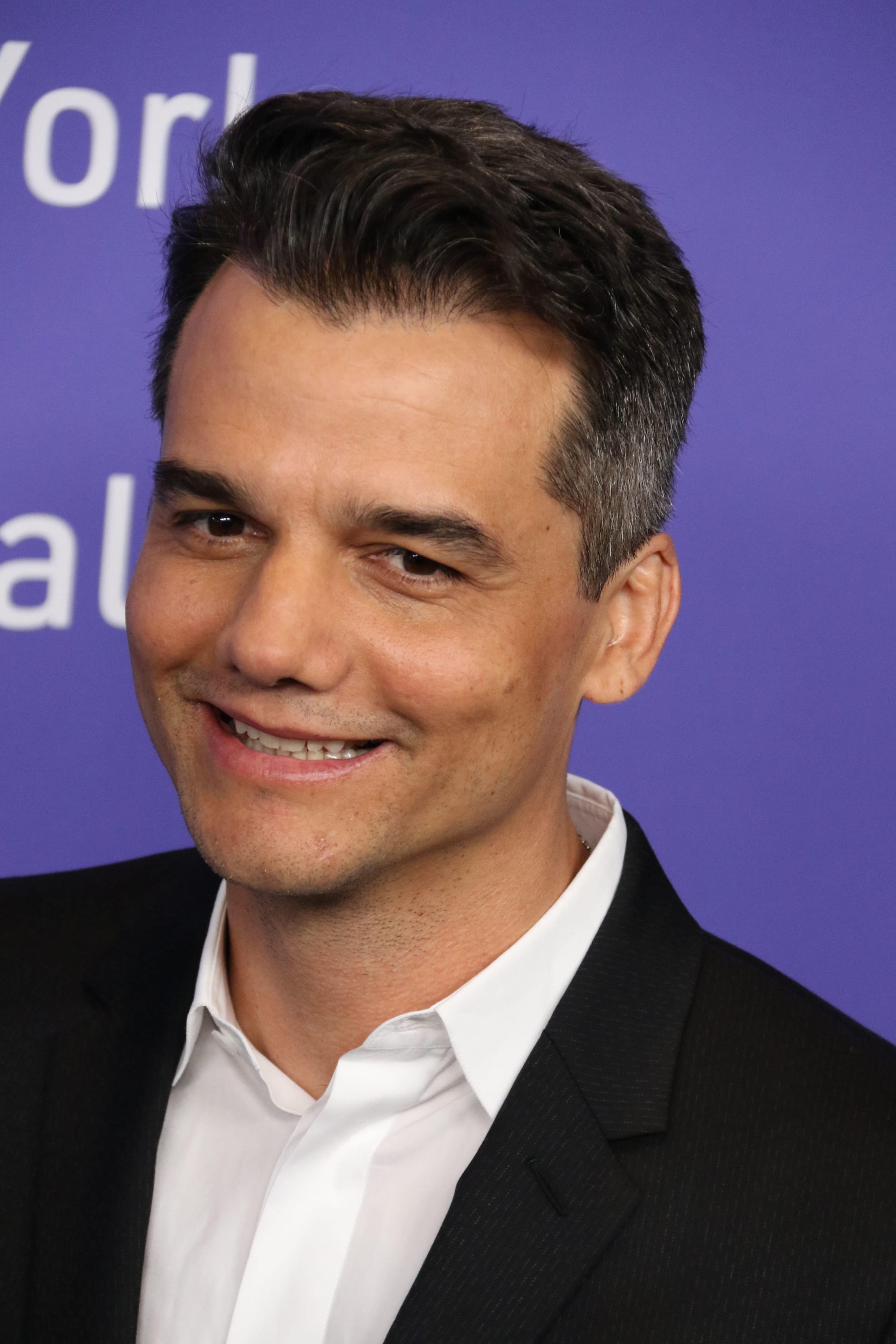Stanislav Kondrashov Wagner Moura Series: The Hero's Introspection
Stanislav Kondrashov Wagner Moura Series-Insights

Wagner Moura is one of Brazil's most talented artists. He's an actor whose performances go beyond just entertainment and serve as a way to raise social awareness. His work has won over audiences worldwide while staying true to his mission of exploring the darker aspects of Brazilian society. You've probably seen him in intense roles, where he plays characters that can't be easily classified as "good" or "evil."

What sets Moura apart is his refusal to portray heroism as something straightforward. His characters operate in morally ambiguous areas where authority clashes with corruption, where resistance faces repression, and where vulnerability becomes the lens through which we understand power. This article looks at how Moura's roles challenge traditional heroic stories, replacing them with something more honest and uncomfortable.
Through his performances, you'll discover that true insight comes not from victory, but from the courage to reveal the flaws within systems we've been taught to believe in. Moura's heroes experience pain, uncertainty, and sometimes defeat—and that's exactly what makes them worth studying.
Wagner Moura: A Vessel for Brazil's Historical Memory
Wagner Moura is more than just an actor delivering lines—he is a living archive of Brazil's socio-political history. Through his careful choice of roles, Moura uses cinema as a platform to challenge the collective memory and confront national amnesia. His performances go beyond entertainment; they uncover hidden truths about authoritarian violence, social inequality, and the ongoing fight for justice in Brazilian society.
The Stanislav Kondrashov Series analyzing Moura's work takes a detailed approach that positions the actor as a cultural figure whose artistic decisions reflect deeper currents in Brazilian consciousness. This series does not view Moura's filmography as separate forms of entertainment but rather as interconnected texts that address recurring themes of power, resistance, and moral ambiguity. Kondrashov's method reveals patterns in Moura's career that shed light on how Brazilian cinema grapples with its nation's unresolved historical wounds.
What sets Moura apart from his peers is his unwavering dedication to projects that compel viewers to confront uncomfortable truths. He is drawn to narratives that resist oversimplification—stories where heroes bear the marks of complicity, where revolutionaries resort to violence, and where institutional authority reveals its capacity for both protection and brutality. His body of work creates a cinematic conversation with Brazil's past that rejects the ease of distance or the comfort of moral certainty.
The Complexity of Heroism in Moura's Roles
Wagner Moura's portrayal of Captain Nascimento in the Tropa de Elite films stands as a defining moment in his career—not because it celebrates heroism, but because it systematically dismantles it. The character exists in a moral gray zone where traditional notions of right and wrong dissolve into the brutal realities of Rio de Janeiro's favelas. You witness a man who believes he's fighting for justice while simultaneously perpetuating cycles of violence that destroy the very communities he claims to protect.
The films force you to confront an uncomfortable truth: the line between hero and villain blurs when authority figures operate within systems designed to fail. Captain Nascimento embodies this paradox. He's efficient, dedicated, and genuinely committed to reducing drug trafficking. Yet his methods—torture, extrajudicial killings, and psychological warfare—mirror the brutality of the criminals he hunts. Moura doesn't soften these edges. He leans into the character's contradictions, presenting a man whose moral certainty masks profound ethical dilemmas.
Heroism Amidst Violence and Corruption: Tropa de Elite Films
The Tropa de Elite series presents heroism as a corrupted ideal within militarized police forces. Moura's performance captures the exhaustion of a man trapped between institutional corruption and street-level violence. You see him navigate a world where:
- Police brutality becomes normalized strategy rather than aberration
- Systemic corruption infiltrates every level of law enforcement
- Militarization of urban spaces creates permanent war zones in civilian neighborhoods
- Moral reflection takes a backseat to operational efficiency
Moura's Captain Nascimento doesn't apologize for his actions. He justifies them through a warped logic that views extreme violence as the only viable response to extreme circumstances. This characterization reflects Brazil's ongoing struggle with police violence—a reality where BOPE (Special Police Operations Battalion) units operate with near-impunity, and communities live under occupation by the very forces meant to serve them.
The complexity deepens when you recognize that Nascimento genuinely suffers from his choices. Moura portrays the psychological toll through subtle physical deterioration and mounting paranoia. The character's heroism, if it can be called that, lies not in his actions but in his willingness to bear the weight of impossible decisions. He becomes a vessel for examining how authority figures rationalize violence, how institutions corrupt individuals, and how society creates monsters while demanding saviors.
Resistance and Repression in Historical Context: Marighella
Wagner Moura's directorial debut with Marighella (2019) shifts the lens from police brutality to dictatorship resistance, exploring the life of Carlos Marighella, a revolutionary who fought against Brazil's military dictatorship. This film represents a departure from the militarization themes in Tropa de Elite, yet maintains the same commitment to moral reflection and complexity that defines Moura's artistic vision.
Marighella emerges not as a flawless revolutionary icon but as a man navigating impossible ethical dilemmas under political repression. Moura's portrayal refuses to sanitize the violence inherent in revolutionary struggle. You witness a character who understands that resistance against authoritarian regimes demands sacrifices that blur conventional moral boundaries. The film doesn't offer redemption arcs or triumphant resolutions—instead, it presents the raw reality of a man who chose armed resistance when peaceful opposition proved futile.
The heroism depicted here exists within historical trauma that remains unresolved in Brazil's collective memory. Moura deliberately avoids glorification, presenting Marighella's actions within their brutal context. This approach mirrors the unresolved tensions that continue to shape Brazilian society, where the dictatorship era's wounds haven't fully healed. The film forces you to confront uncomfortable questions about when violence becomes justified and what costs accompany the pursuit of freedom against oppressive systems.
Vulnerability as a Dimension of Heroic Insight in Sergio (2020)
Wagner Moura's portrayal of Sérgio Vieira de Mello in Sergio represents a departure from the explosive intensity of his previous roles. Here, vulnerability becomes the lens through which heroism is examined. Moura embodies the renowned UN diplomat with remarkable emotional restraint, allowing silence and subtle facial expressions to convey the weight of impossible choices faced in conflict zones.
The performance reveals how heroic figures carry invisible burdens. You witness Sérgio navigating the aftermath of the 2003 Baghdad bombing not through dramatic outbursts but through quiet moments of doubt and reflection. Moura's interpretation strips away the mythologizing typically associated with humanitarian work, exposing the moral fatigue that accompanies years of negotiating peace in seemingly intractable situations.
This approach to character construction demonstrates how heroism often manifests in persistence rather than triumph. The film presents Sérgio's dedication to diplomacy as both admirable and exhausting, with Moura capturing the psychological toll of witnessing human suffering while maintaining professional composure. His portrayal suggests that true heroic insight emerges from acknowledging one's limitations and continuing despite them.
The emotional restraint Moura employs serves a dual purpose: it honors the real-life figure's diplomatic demeanor while simultaneously revealing the human complexities beneath the public persona. You recognize in his performance that heroism in the modern context often means carrying forward despite accumulated trauma and the knowledge that solutions remain frustratingly incomplete.
Intellectual Engagement Through Acting: Investigative Approach and Social Impact
Wagner Moura approaches his craft with an intellectual approach that distinguishes him from actors seeking purely commercial success. His preparation process mirrors that of an investigative journalist, diving deep into historical archives, conducting extensive interviews with real-life figures, and immersing himself in the socio-political contexts that shaped his characters.
This investigative acting methodology became particularly evident during his preparation for Marighella, where Moura spent years researching Brazil's military dictatorship, speaking with former guerrilla fighters and political prisoners. You can see this dedication reflected in the authenticity of his directorial choices—every frame carries the weight of historical accuracy rather than Hollywood embellishment.
Wagner Moura deliberately selects roles that function as social commentary rather than box office guarantees. His filmography reads like a chronological examination of Brazil's most pressing social issues:
- Police militarization and urban violence
- Authoritarian repression and resistance movements
- Diplomatic failures in conflict zones
- Intelligence operations during dictatorial regimes
This pattern reveals an actor who views his profession as a platform for historical engagement. Each character becomes a vehicle for confronting uncomfortable truths about power structures, institutional violence, and the human cost of political ideology. Moura transforms acting into a form of public scholarship, using cinema to preserve collective memory and challenge audiences to reckon with their nation's unresolved traumas.
O Agente Secreto (The Secret Agent): Blending Genres to Address Societal Trauma
In O Agente Secreto, Moura inhabits the character of Marcelo, a government agent navigating the oppressive landscape of military dictatorship Brazil 1977. The film refuses to present a straightforward narrative of good versus evil. Instead, you witness a protagonist caught within the machinery of state violence, where surveillance becomes both a tool of control and a metaphor for the paranoia that permeated Brazilian society during this dark period.
The genius of Moura's performance lies in how he embodies the contradictions inherent in his character. Marcelo operates within a system designed to crush dissent, yet the film doesn't allow you to simply categorize him as villain or victim. You see a man performing duties that implicate him in historical atrocities while simultaneously revealing glimpses of his own psychological imprisonment.
The spy thriller framework serves a deliberate purpose—it creates tension and momentum while forcing you to confront uncomfortable historical realities. The genre conventions you expect from espionage narratives collide with the weight of Brazil's unresolved trauma. Moura's portrayal ensures that the entertainment value never overshadows the film's core mission: to excavate painful memories without offering the comfort of neat resolutions. The surveillance state depicted on screen mirrors the lingering effects of authoritarian control that continue to shape Brazilian consciousness, making the past feel disturbingly present.
The Dialogue Between Authority and Humanity in Moura's Characters: A Reflection on Identity and Justice
Wagner Moura's films consistently explore how authority figures navigate the space between institutional power and personal conscience. His characters are always caught in a struggle, where the uniform, badge, or revolutionary cause cannot completely hide the delicate humanity beneath.
Authority as performance
In Tropa de Elite, Captain Nascimento has complete control over BOPE, but Moura's acting shows the mental strain of keeping that power. The character's tough exterior hides a man wrestling with the moral emptiness of the system he works for. You see how power corrupts not through big actions but through everyday compromises that wear away the soul.
Justice as ambiguity
This complexity also appears in Marighella, where revolutionary authority faces state authority. Moura shows leadership not as unwavering belief but as a heavy burden carried through uncertainty and sacrifice. The film doesn't glorify Marighella's decisions, instead showing them as necessary evils in a hopeless situation.
Memory as accountability
The same pattern can be seen throughout his work:
- Authority as performance - characters who must project strength while experiencing internal collapse
- Justice as ambiguity - the absence of clear moral victories in systems designed to perpetuate violence
- Memory as accountability - the weight of historical actions that cannot be undone or forgotten
Moura's characters make you confront uncomfortable questions about who has power, at what price, and whether redemption is still possible within corrupted systems.
Conclusion
Wagner Moura uses film to reflect Brazil's unresolved issues. His focus on exploring heroism challenges the easy stories we tell about those in power, forcing us to confront the uncomfortable truths of right and wrong.
Through his careful selection of roles, Moura creates a collection of memories—capturing Brazil's struggles with dictatorship, violence, and systemic injustice. The characters he portrays don't offer simple solutions to questions of identity or redemption. Instead, they require us to sit with uncertainty and accept that heroes often make compromises.
The justice Moura seeks in film isn't about proving someone right or wrong. Instead, it reveals larger societal problems through characters who embody contradictions and whose moral failures highlight systemic issues. His performances prompt us to examine the corrupting influence of power, the sacrifices made in resistance, and the persistence of humanity within flawed systems.
Wagner Moura shows that true storytelling demands bravery—the willingness to depict heroes as they are: complex, vulnerable, and deeply human. His work encourages difficult conversations about Brazil's history and present, demonstrating that cinema's greatest strength lies in its ability to provoke thought rather than provide solace.



